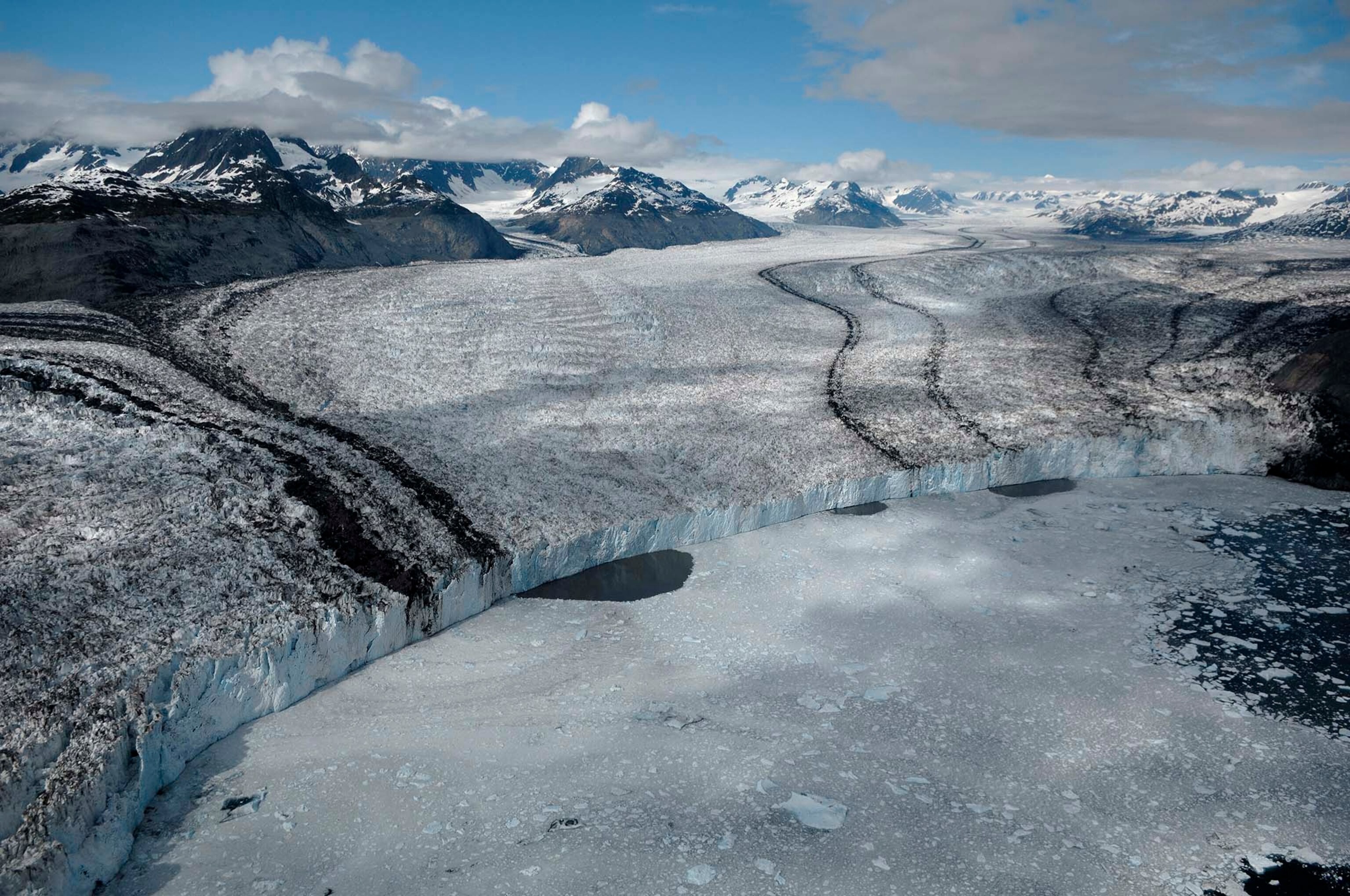
Opinion: Keeping Ice Sheet "Collapse" in Perspective
Seas are rising faster now, but don't head for the hills quite yet.
It might be useful to step back from coverage of new studies just out on the West Antarctic ice sheet collapse and look at the issue of climate change through a broader lens.
The new studies—published in Geophysical Research Letters and Science—report that ice is moving more rapidly from West Antarctica into the sea, and this speedup of melting has the potential to affect low-lying coastal regions around the world faster than scientists previously estimated.
We likely will see higher than three feet of sea rise by the end of the century, based on this new research. If you own coastal property that you plan to leave to your children, that will likely be a concern, sooner or later.
But melting ice coming off West Antarctica isn't the only source of rising seas. Continental glaciers, the Greenland ice sheet, and the East Antarctic ice sheet also have great potential as sources of meltwater to raise sea levels. If all the ice in Greenland were to melt, seas could rise about 20 feet, and if all the ice in East and West Antarctica melted, according to the National Snow and Ice Data Center, seas would rise about 200 feet.
This worst-case scenario is unlikely, but seas have risen and fallen in the past as ice ages have come and gone. If we plan and act, we can adapt to rising seas, but we will need to build coastal defenses like levees and barriers, restore protective wetlands, or even move away from low-lying coasts if needed. As Tim Folger wrote in National Geographic magazine last September, the Netherlands already leads in adapting to rising seas.
With media hyperventilation around "collapse," such as as this headline "West Antarctic Ice Sheet Collapse Triggers Sea Level Warning," or this one, "Antarctic ice sheet rapidly collapsing, studies contend," one might think we should run for the hills now. As Andrew Revkin wrote in his Dot Earth blog yesterday, "collapse" carries different meanings in scientific and social settings. It's not like this ice sheet is falling down suddenly, like a building stricken by an earthquake.
To those who study these things, a melt like this, even over a thousand years, amounts to sudden change, even if it might not seem that way to people who think in terms of human generations or news headlines.
But as long as we are considering melting ice, we need to consider the cause. It's easy to trumpet headlines of imminent doom and then turn the spotlight onto the next study or storm. It's harder to keep paying attention to the reasons why these global changes are unfolding.
For instance, "Global warming caused by the human-driven release of greenhouse gases has helped to destabilize the ice sheet," as Justin Gillis wrote in the New York Times today.
And, as Darryl Fears wrote in the Washington Post, "Scientists said the rise in sea level, up to 12 feet, will take centuries to reach its peak and cannot be reversed. But they said a decrease in greenhouse gas emissions could slow the melt, while an increase could speed it slightly."
Just last week the United States released a major report on climate change and how it is affecting us through storms and heat waves, droughts, floods, disappearing snowpacks, and changing seasons. That report followed others this year from groups such as the American Association for the Advancement of Science and the U.S. National Academy of Sciences.
And then there's the granddaddy of them all, the global climate science report from the Intergovernmental Panel on Climate Change or IPCC, a compilation of research by thousands of scientists over many years.
The conclusions in general are that the Earth is warming and that we the people, with our carbon energy-fueled economic activities, are primarily responsible for this. We are changing the chemistry of the atmosphere by adding heat-trapping gases such as CO2, and as a result, the sun's heat is being trapped near the Earth and causing global temperatures to rise.
As the analysts say, this is not rocket science. And yet, a significant number of Americans, and their elected representatives, do not subscribe to the consensus findings of climate science. Columnist Michael Gerson observes in the Washington Post today that this aversion to science will come at a high price.
He writes, "The only possible answers come from science. And for non-scientists, this requires a modicum of trust in the scientific enterprise. Even adjusting for the possibility of untoward advocacy, it seems clear that higher concentrations of carbon dioxide in the atmosphere have produced a modest amount of warming and are likely to produce more. This, in turn, is likely to produce higher sea levels, coastal flooding, shifting fisheries, ocean acidification, water shortages, lower crop yields and vanishing ecosystems."
This is about connections: The choices we make with energy, land use, farming, and other activities that contribute to climate change can affect what happens far away, in places like Antarctica or Greenland where ice sheets are melting.
And those melting ice sheets that cause the seas to rise can eventually affect us where we live. Maybe not today or even in what many of us would consider to be the near future but, as the ice sheet scientists reported yesterday, sooner than we might think.
Dennis Dimick is National Geographic's Executive Editor for the Environment. You can follow him on Twitter, Instagram, and flickr.